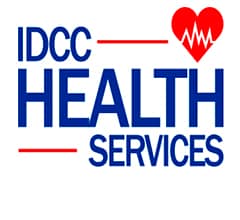In today’s rapidly evolving healthcare landscape, the term “Ambulatory Referral” has gained significant attention. As medical practices and patient needs continue to evolve, the role of cardiology in ambulatory referral has become crucial. In this comprehensive guide, we will delve into the world of ambulatory referral, explore the pivotal role of cardiology in this process, and discuss the benefits, challenges, and future perspectives of ambulatory referral to cardiology.
Book with the best cardiologist in Brooklyn today!

What is Ambulatory Referral?
Ambulatory referral, often referred to as outpatient referral, is a vital component of modern healthcare. It involves the transfer of patients from primary care providers to specialists, such as cardiologists, for further evaluation, diagnosis, and treatment. Unlike inpatient referrals, ambulatory referrals allow patients to receive specialized care while continuing to live their daily lives, making it a valuable approach in contemporary medicine.
Cardiology referral process
An ambulatory referral in the field of cardiology refers to the transfer of a patient from a primary care physician or another medical specialist to a cardiologist for further evaluation and management of their cardiovascular condition. This referral process ensures that patients receive specialized care and expertise in addressing their cardiac health needs effectively.
Identifying the need for referral
The first step in the cardiology referral process is the identification of the need for referral. This can arise in a variety of ways, such as initial evaluation of a patient, detection of concerning cardiac symptoms, or follow-up of chronic cardiac conditions. Health care professionals should be alert to signs and symptoms that indicate the need for a cardiac referral.
Criteria for referral
Once the need for a cardiology referral has been identified, it is essential to establish appropriate criteria to determine who should be referred to a cardiologist. These criteria may vary depending on the situation and the severity of the condition, but their main objective is to ensure that patients receive the right cardiology care at the right time.
Making the referral
The final step in the referral process is the referral itself. This involves effective communication between the primary care physician and the cardiologist, as well as coordination of the appointment and exchange of relevant medical information. The referral must be made in a timely and efficient manner to ensure that the patient receives appropriate cardiologic evaluation and ongoing care if necessary.
Importance of cardiac referral
Cardiac referrals play a crucial role in the prevention and treatment of heart disease. Specialized cardiac care can diagnose heart conditions at earlier stages, which increases the chances of successful treatment and a better quality of life for patients. In addition, referrals are essential to ensure that patients receive appropriate cardiac care and are provided with necessary interventions when needed.
Do you need a referral to see a cardiologist?
Whether or not you need a referral to see a cardiologist can vary depending on several factors, including your location, healthcare system, and health insurance plan. Here are some common scenarios:
- Primary Care Physician Referral: In many healthcare systems, the usual process is to first visit your primary care physician (PCP) or general practitioner. If your PCP identifies or suspects a cardiac issue, they may then provide you with a referral to a cardiologist for further evaluation and treatment.
- Direct Access to a Cardiologist: In some cases, you may have the option to schedule an appointment with a cardiologist directly without a referral, especially if you have a specific cardiac concern or if your health insurance plan allows it. This is more common in private healthcare systems.
- Health Insurance Requirements: Your health insurance plan may have specific requirements regarding referrals. Some insurance plans may require a referral from your PCP to see a specialist like a cardiologist, while others may allow you to self-refer.
- Emergency Situations: In emergency situations such as a heart attack, you would typically be taken directly to the hospital’s emergency department, where you would receive immediate care from a cardiologist or a cardiac team without the need for a referral.
It’s essential to check with your healthcare provider or insurance company to understand the specific requirements and procedures for seeing a cardiologist in your area and under your insurance plan. If you have any cardiac symptoms or concerns, it’s crucial to seek medical attention promptly, whether through your PCP or the appropriate emergency services, to ensure timely evaluation and treatment.
Reasons for Ambulatory Referrals
Ambulatory referrals to a cardiologist are made by referring physicians for various reasons, indicating the necessity for specialized cardiac evaluation and care. These referrals occur when the referring physician identifies specific cardiovascular conditions, symptoms, or risk factors that require further investigation or management by a cardiac specialist.
One common reason for ambulatory referrals is suspected or confirmed cardiac conditions, such as coronary artery disease, heart failure, arrhythmias, valvular heart diseases, or congenital heart abnormalities.
For instance, if a patient presents with persistent chest pain or discomfort that could be indicative of underlying coronary artery disease, the referring physician may recommend a referral to a cardiologist.
The cardiologist can then conduct further evaluations, such as stress tests or coronary angiography, to assess the patient’s cardiac health and develop an appropriate treatment plan.
In addition, symptoms like unexplained shortness of breath, palpitations, dizziness, or fainting episodes may also trigger a referral to a cardiologist. These symptoms may suggest underlying arrhythmias or cardiac rhythm disorders, which require specialized evaluation.
What happens when you get referred to a cardiologist?
When you get referred to a cardiologist, it means that your primary care physician (PCP) or another healthcare provider has identified a need for specialized cardiac evaluation and care. Here’s what typically happens when you receive a referral to a cardiologist and what you should do:
- Receive Referral: Your PCP will provide you with a referral letter or instructions for scheduling an appointment with a cardiologist. This referral will include important information about the reason for the referral and any relevant medical history.
- Schedule an Appointment: Contact the cardiologist’s office to schedule an appointment. You can usually find the contact information for the cardiologist on the referral letter. Depending on the urgency of your condition, you may be scheduled for an appointment relatively quickly or within a few weeks.
- Gather Medical Records: Before your appointment, gather any relevant medical records, test results, and imaging studies related to your cardiac health. This information can be helpful for the cardiologist in assessing your condition and making an accurate diagnosis.
- Prepare Questions: Consider writing down any questions or concerns you have about your heart health. Being prepared with questions can help you have a more productive discussion with the cardiologist during your appointment.
- Attend the Appointment: On the day of your appointment, arrive on time and bring your referral letter, identification, insurance information, and any relevant medical records. The cardiologist will conduct a thorough evaluation, which may include a review of your medical history, a physical examination, and possibly additional tests such as an electrocardiogram (ECG or EKG), echocardiogram, stress test, or other cardiac imaging studies.
- Discuss Findings and Treatment Options: After the evaluation, the cardiologist will discuss their findings with you and may recommend a treatment plan. This plan could include lifestyle changes, medications, further diagnostic tests, or procedures. It’s essential to ask any questions you have and fully understand your condition and treatment options.
- Follow the Treatment Plan: If the cardiologist prescribes medications or recommends lifestyle changes, be sure to follow their instructions closely. Attend any follow-up appointments as scheduled and keep the lines of communication open with your healthcare team.
- Coordinate with Your PCP: Your cardiologist will work closely with your PCP to ensure comprehensive and coordinated care. They will share information about your diagnosis and treatment plan, and your PCP will continue to be an important part of your overall healthcare team.
Remember that timely evaluation and follow-up with a cardiologist can be crucial for managing cardiac conditions effectively. If you have any concerns about your heart health or have been referred to a cardiologist, it’s essential to prioritize your health and seek the necessary medical care.
Our Locations
IDCC at 445 Kings Hwy
445
Kings Hwy 2nd fl Brooklyn, NY 11223
718-715-0624
IDCC at 2846 Stillwell Ave
2846
Stillwell
Ave, Brooklyn, NY 11224
718-715-0613
IDCC at 201 Kings Hwy
201 Kings
Hwy
#2nd, Brooklyn, NY 11223
718-715-0629
info@idcchealth.org
